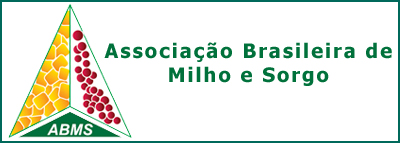AN ALTERNATIVE APPROACH TO THE ACTUAL BRAZILIAN MAIZE CROP ZONING
DOI:
https://doi.org/10.18512/1980-6477/rbms.v13n3p347-363Palavras-chave:
Climate risk, Sowing window, Modeling, DSSAT, Zea mays L..Resumo
Maize produced under rainfed conditions are highly affected by the inherent annual and intra-seasonal weather variability, especially dry spells, that affect productivity. One of the simplest strategies with virtually no cost to mitigate this problem is the determination of a sowing window. The objectives of this study were to: a) use the results of maize yield simulated with a process-based model to establish sowing windows and, b) compare our results with the current methodology employed by the Brazilian Ministry of Agriculture (MAPA). The CSM-CERES-Maize model was used to simulate scenarios of weekly sowing dates, under rainfed conditions, for selected counties of Minas Gerais State, Brazil. For each sowing date it was determined the yield break by comparing the average yield of the current sowing date with the highest average yield obtained from all sowing dates. The use of a process-based model to simulate crop yield allows for the integration of many factors not considered in the current crop zoning approach used by MAPA. The proposed approach has advantages over the MAPA methodology in that it includes the possibility of determining the expected average yield and its amplitude.Downloads
Publicado
06-04-2015
Como Citar
ANDRADE, C. D. L. T. D., PAIXÃO, J. S., GARCIA Y GARCIA, A., AMARAL, T. A., STEIDLE NETO, A. J., & MARIN, F. R. (2015). AN ALTERNATIVE APPROACH TO THE ACTUAL BRAZILIAN MAIZE CROP ZONING. REVISTA BRASILEIRA DE MILHO E SORGO, 13(3), 347–363. https://doi.org/10.18512/1980-6477/rbms.v13n3p347-363
Edição
Seção
Artigos Cientificos
Licença
Autores que publicam nesta revista concordam com os seguintes termos:- Autores mantém os direitos autorais e concedem à revista o direito de primeira publicação, com o trabalho simultaneamente licenciado sob a Creative Commons Attribution License que permitindo o compartilhamento do trabalho com reconhecimento da autoria do trabalho e publicação inicial nesta revista.
- Autores têm autorização para assumir contratos adicionais separadamente, para distribuição não-exclusiva da versão do trabalho publicada nesta revista (ex.: publicar em repositório institucional ou como capítulo de livro), com reconhecimento de autoria e publicação inicial nesta revista.
- Autores têm permissão e são estimulados a publicar e distribuir seu trabalho online (ex.: em repositórios institucionais ou na sua página pessoal) a qualquer ponto antes ou durante o processo editorial, já que isso pode gerar alterações produtivas, bem como aumentar o impacto e a citação do trabalho publicado



